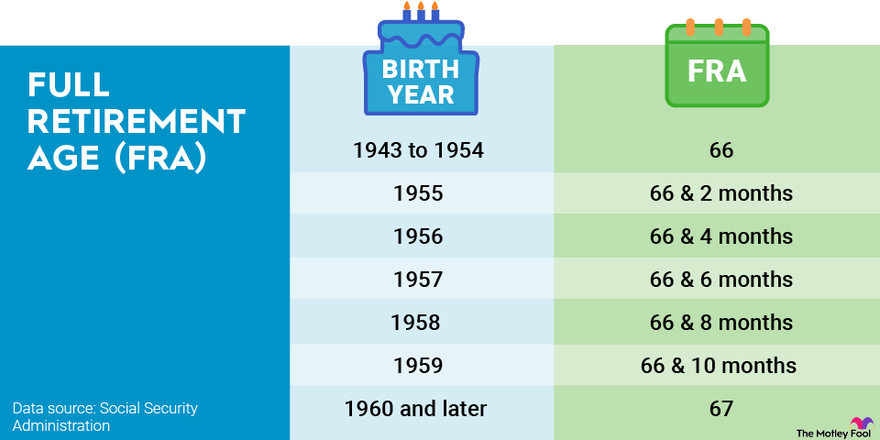If I Could Tell All Retirees 1 Thing About Social Security in 2025, I'd Say to Do This Before You Claim Benefits

Is retirement on your radar? Maybe you're even planning to permanently leave the world of work in the coming year. If so, congratulations! You've certainly earned the right to focus on yourself rather than your job.
Before calling it quits and initiating your Social Security retirement payments in 2025, however, there's one thing you'll want to do -- weigh the financial cost of claiming benefits now instead of waiting.
Are You Missing The Morning Scoop? Breakfast News delivers it all in a quick, Foolish, and free daily newsletter. Sign Up For Free »
You can begin receiving Social Security benefits as early as 62 years of age. However, you won't be receiving as much money as you could be. Anyone waiting until their full retirement age (between 66 and 67, depending on birth year) will see bigger monthly checks.
The difference can be significant. Getting this four- or five-year head start on your benefits will permanently reduce your payments by as much as 25% to 30%, depending on your age.
The penalty shrinks the closer you get to your full retirement age (FRA). For example, if you claim 12 months before reaching full retirement age, your monthly benefits are only reduced by 6 2/3% of what your payments would be at FRA.
Given that the average-sized Social Security check currently stands at just over $1,900, though, this potential difference still isn't small change for most people. It can mean a few hundred dollars per month.
That being said, you should also know that waiting until after you've reached your designated FRA makes your eventual payments even bigger. Anyone who waits to claim benefits until they're 70 years old will see monthly payments between 15% and 25% bigger than they'd receive at their official full retirement age. The table below illustrates the stark financial difference between claiming early or delaying benefits.
| Birth Year | Full Retirement Age | Percentage of Full Benefit by Age at First Claim | ||||||
|---|---|---|---|---|---|---|---|---|
| 1943-54 | 66 | 75 | 80 | 86 2⁄3 | 93 1⁄3 | 100 | 108 | 132 |
| 1955 | 66, 2 mo. | 74 1⁄6 | 79 1⁄6 | 85 5⁄9 | 92 2⁄9 | 98 8⁄9 | 106 2⁄3 | 130 2⁄3 |
| 1956 | 66, 4 mo. | 73 1⁄3 | 78 1⁄3 | 84 4⁄9 | 91 1⁄9 | 97 7⁄9 | 105 1⁄3 | 129 1⁄3 |
| 1957 | 66, 6 mo. | 72 1⁄2 | 77 1⁄2 | 83 1⁄3 | 90 | 96 2⁄3 | 104 | 128 |
| 1958 | 66, 8 mo. | 71 2⁄3 | 76 2⁄3 | 82 2⁄9 | 88 8⁄9 | 95 5⁄9 | 102 2⁄3 | 126 2⁄3 |
| 1959 | 66, 10 mo. | 70 5⁄6 | 75 5⁄6 | 81 1⁄9 | 87 7⁄9 | 94 4⁄9 | 101 1⁄3 | 125 1⁄3 |
| 1960 and later | 67 | 70 | 75 | 80 | 86 2⁄3 | 93 1⁄3 | 100 | 124 |
Data source: Social Security Administration.
Your marching orders, therefore, are to get in touch with the Social Security Administration -- online, in person, or by phone -- and compare all of your benefit options as they stand right now. You may find there's good reason to continue working for at least another year. Or, you may earn there's not enough upside to sticking with your job until you're 70 years old.
Breaking news
See all






